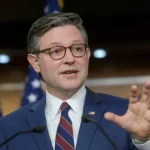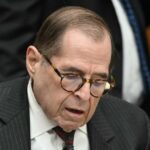
–>
October 7, 2022
Donald Trump’s “America First” doctrine encountered stormy weather in the American globalists’ community, which characterized it as a mix of nationalism, unilateralism, and xenophobia.
‘); googletag.cmd.push(function () { googletag.display(‘div-gpt-ad-1609268089992-0’); }); }
However, “my country first” doctrine was not a new approach to international order. It was originated in the 17th century by a Frenchman, Armand-Jean du Plessis, known as Cardinal de Richelieu. Richelieu offered a revolutionary concept to create stability in the international system, later known as raison d’état or national interests. The concept has served as the most reliable guide for government policies for the last 300 years.
So, what is raison d’état for the major players involved in the Ukrainian conflict?
United States
‘); googletag.cmd.push(function () { googletag.display(‘div-gpt-ad-1609270365559-0’); }); }
America, unlike the rest of the world, claims that its foreign policy is not guided by national interests, and often does act on idealistic values. American foreign policy is supposed to be guided by superior principles – the proliferation of democracy and individual rights. America’s inability to define its national interests – indeed, its refusal to accept the validity of such a concept — produced many of this country’s tragedies.
This time, we witness a radical reversal of American policy. In reality, the war that is fought ostensibly to protect Ukraine’s democracy and territorial integrity is a war in pursuit of American national interests and a domestic agenda. It is to keep the “evil empire” case alive, justify NATO’s existence and support the military-industrial complex. But the main objective is to make the European Union, which has built its prosperity on cheap Russian gas, less competitive. The prime target is the European powerhouse, Germany. To our great relief, the best part is that after decades of bringing our children home in coffins, Ukrainians are dying instead.
Europe
Although Europeans subordinated their sovereignty and national interests to unelected bureaucrats in Brussels’s European Union headquarters, their history’s complexity precludes them from a shared view of national purpose. Indeed, Europeans have no vital interests in the war. What unites them against Russia is the burden of revenge.
The governments of Russia have fought a huge number of wars and there are few European countries that have not been involved in a war with Russia at one point or the other. The historic memory dies hard. Sweden cannot forget Poltava, Turkey its loss of Crimea, France a victory parade of 160 000 Russian troops on the outskirts of Paris after the defeat of Napoleon, Germany a red flag planted over the Reichstag, Poland the partition of the country and communist slavery, Baltic states for being part of the Russian empire and later suffering the fate of Poland and so on. Europeans have confused historical grievances with national interests.
Britain, on the other hand, cannot take off the shackles of nostalgia for the lost imperial glory. But, with the German economy weakening, Britain has a shot at mastering Europe.
‘); googletag.cmd.push(function () { googletag.display(‘div-gpt-ad-1609268078422-0’); }); } if (publir_show_ads) { document.write(“
Ukraine
Since Ukraine gained independence, the country has acted consistently against its national interests. The Ukrainian economy was a vital part of the Soviet Union’s economy. Ukraine produced tractors, locomotives, airplanes, stream turbines, electrical motors, and a variety of military equipment, including airplanes, tanks, rocket lunches, and much more. Although the products were outdated by Western standards, they were reliable and cheap. Russia was the natural market for Ukrainian goods and services. Ukraine, however, decided to join the EU. It failed and lost the Russian market.
As a result, independent Ukraine has never been able to support itself and exists dependent on the USA and Western Europe. To secure a continuing revenue stream, Ukraine became NATO’s mercenary. As such, Kiev demands $7 billion per month in financial aid and $750 billion for reconstructing Ukraine after the war. Securing foreign aid became Ukraine’s national purpose.
Russia
As for Russia, its raison d’état emanates from its geography and history. Spanning eleven time zones with very few natural defensive barriers, Russia has always acted with some degree of paranoia. Given its tragic history, Russia’s paranoia is not without merit. In the 13th century, Russia was invaded by Mongols, who erased Kiev and imposed almost three hundred years of suzerainty. In the 19th century, Napoleon’s Grande Armée drove the Russians all the way to Moscow. In the 20th century, the German invasion cost Russia 20 million lives. The geography and history epitomize Russia’s reaction to the prospects of Ukraine joining NATO. If Ukraine joined NATO, it would put the military alliance within striking distance, about 500 miles, from Moscow. After 30 years of trying to resolve the issue amicably, this irrevocable fact of geography made the invasion of Ukraine an elemental necessity.
Another elemental necessity is maintaining mutually beneficial arrangements with Europe, especially with Germany. Indeed, while cheap gas sustained the German economy, it was also a major source of revenue for the Russian state. It is not in Russia’s national interest to kill the goose that lays golden eggs. Russia’s predicament is having two national interests in conflicting currents.
The outcome so far
At this juncture, most American objectives have been achieved. The war, the sanctions, and the massive hit that put the North Stream pipelines out of commission did the job. Secretary Blinken recently admitted that the explosion was “tremendous opportunity” to decouple Europeans from Russian gas.
This means that for the foreseeable future, Germany will depend on American LNG, and its economic growth will be constrained. Europe is already an economic basket case, and major companies are moving production to the US.
NATO got a new lease on life, and the military-industrial complex for which war is a cash cow is overwhelmed with orders. Russia is deprived of a major source of revenue and gets to keep the title of “evil empire.”
America’s motives may not be entirely honorable, but raison d’état is not a concept based on morality; it is a cold-blooded principle of self-interest.
British Prime Minister Palmerstone famously said, “We have no eternal allies, and we have no perpetual enemies. Our interests are eternal and perpetual, and those interests it is our duty to follow.”
It is ironic that Trump’s “America first” is being implemented under the leadership of a president whom Trump detests.
Alexander G. Markovsky is a senior fellow at the London Center for Policy Research, a conservative think tank that examines national security, energy, risk analysis, and other public policy issues. He is the author of Anatomy of a Bolshevik and Liberal Bolshevism: America Did Not Defeat Communism, She Adopted It. Mr. Markovsky is the owner and CEO of Litwin Management Services, LLC. He can be reached at [email protected]
Photo credit: Rumble video screengrab
<!– if(page_width_onload <= 479) { document.write("
“); googletag.cmd.push(function() { googletag.display(‘div-gpt-ad-1345489840937-4’); }); } –> If you experience technical problems, please write to [email protected]
FOLLOW US ON
<!–
–>
<!– _qoptions={ qacct:”p-9bKF-NgTuSFM6″ }; ![]() –> <!—-> <!– var addthis_share = { email_template: “new_template” } –>
–> <!—-> <!– var addthis_share = { email_template: “new_template” } –>






